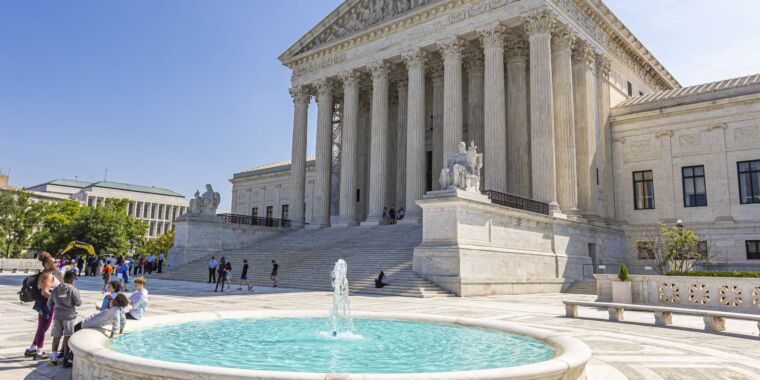Four more large Internet service providers told the US Supreme Court this week that ISPs shouldn’t be forced to aggressively police copyright infringement on broadband networks.
While the ISPs worry about financial liability from lawsuits filed by major record labels and other copyright holders, they also argue that mass terminations of Internet users accused of piracy “would harm innocent people by depriving households, schools, hospitals, and businesses of Internet access.” The legal question presented by the case “is exceptionally important to the future of the Internet,” they wrote in a brief filed with the Supreme Court on Monday.



Yeah, that’s what happens when you decide on issues separately instead of following a consistent set of principles. I, personally, try to follow a consistent set of principles, with as few caveats as I can muster. Here’s my take:
I think everyone should decide what their principles are, and frame every time they deviate as an exception to those principles instead of just taking every issue at face value. If we don’t have that foundation, everything becomes way too subjective.
I take my principles from libertarianism (NAP), not from objectivism (Ayn Rand), and I make exceptions based on utilitarianism.